Lupus: Welsh centres of excellence could 'extend lives'
- Published

Campaigners say centres of excellence could help lupus patients in Wales
Calls have been made for specialist help in Wales to treat an incurable, life-limiting condition which takes an average of six years to diagnose.
An estimated 2,000 people in Wales are affected by lupus, external.
Campaigner Wendy Diment said centres of excellence would "extend the lives" of lupus patients in Wales.
A Welsh Government spokeswoman said health boards could refer people for further treatment if it was not available locally.
There is currently no cure for lupus and it occurs when the immune system mistakenly attacks healthy parts of the body.
"Many GPs and even consultant rheumatologists have limited experience in diagnosing, treating and monitoring patients with lupus, which means that specialist care is often required," said Paul Howard, chief executive of charity Lupus UK.
He has called for investment in services - but until then, wants rules over cross-border referrals relaxed, so care in England's nine centres, external of excellence can be accessed by people in Wales.
Research suggests people with lupus in Wales were twice as likely to be refused specialist help than in the rest of the UK.

Lupus is estimated to affect one in 1,000 people in the UK
For Mrs Diment, 46, the crippling fatigue and headaches would often leave her confined to her bed in tears.
"Some days I couldn't get out of my pyjamas. If I had a shower, I'd need a lie down. It takes a long time to get used to it, it's overwhelming and frustrating," she said.
Mrs Diment, from Tenby, Pembrokeshire, believes the 'trigger' for her condition was the birth of her third child in 2008.
At first she put the symptoms down to tiredness, though she had to quit her job as a legal executive, aged 35.
It was not until four years later that a chance occurrence led to her diagnosis for the rare autoimmune disease.
"I became quite unwell in 2013, and had horrific rashes [another symptom of lupus] on my chest, feet and face. It seemed quite bizarre," she said.
"Steroids cleared it up and I forgot about it. But in October of that year, I was in bed at 7pm suffering from severe fatigue, when my husband watched a television programme on a new drug for a rare condition.
"He woke me up and said 'lupus'. It was the first time I'd heard of it."

What is lupus?
It is an incurable immune system illness
It can produce many symptoms and can lead to irreversible organ damage
Many people with lupus are unusually sensitive to the sun, which can trigger a skin rash
Affected organs include kidneys, skin, brains, hearts and lungs. Almost all patients experience pain and extreme fatigue
Nine out of ten patients are women and it is more common in people of black, Asian and minority ethnic heritage

She was diagnosed with a type of lupus that year, but the rashes that had appeared made her believe it was a different variant of the complex condition she was suffering from.
It would take another four years - and paying to see a specialist in London - until her suspicions were proved right.
While she acknowledges things have improved since the 1960s when it was treated as "a terminal illness with survival not great past five years", Mrs Diment still sees "a bundle of prejudices" around it.
Some 90% of patients are women and it is sometimes treated in relation to mental health or dismissed as "women saying they're tired", she added.
By taking 15 tablets a day, Mrs Diment is able to now focus on essentials, such as preparing meals for her children, as well as campaigning and running a support group for 50 other sufferers.
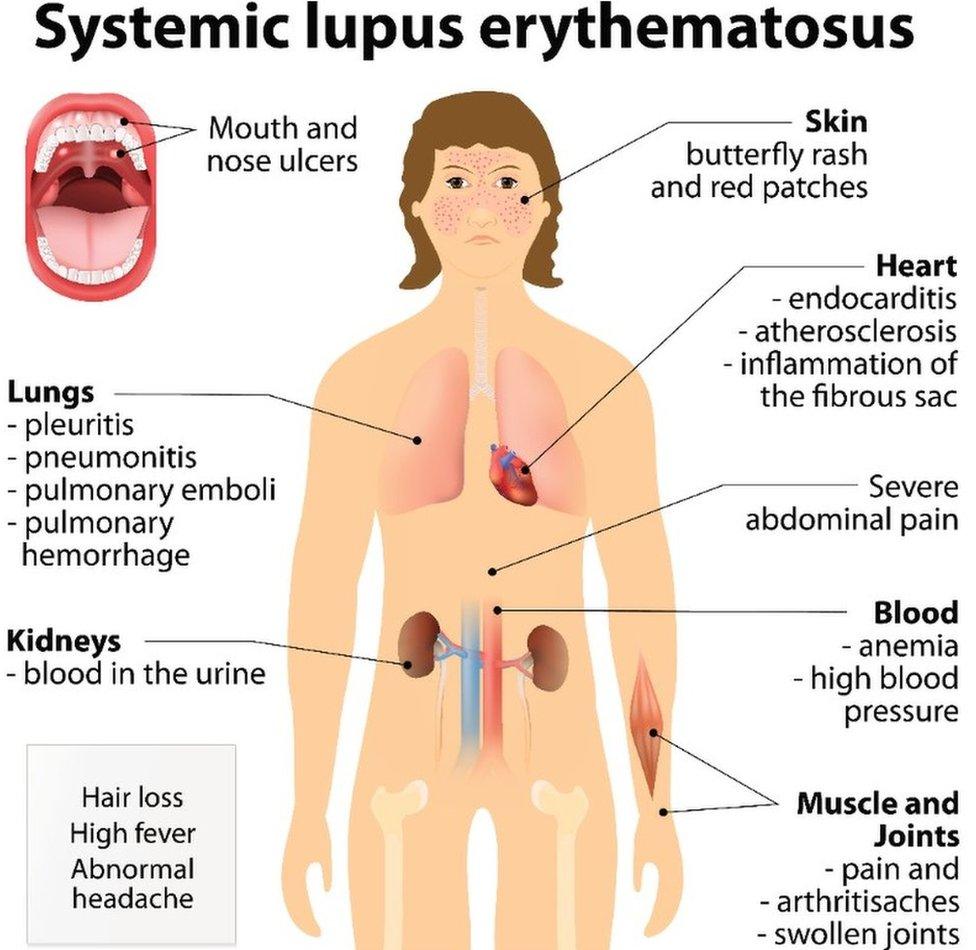
Lupus can be hard to diagnose because of the wide variety of symptoms between patients
She wants to see centres of excellence established in north and south Wales to employ specialists, researchers and nurses to help with health and lifestyle.
"I get frustrated how many ask for referrals to England or second opinions on their diagnosis," she said.
"They are so poorly and unwell, they don't question the system, just accept it as their fate.
"In England it is a specialism, so they have improved outcomes.
"People in Wales would just like reassurances they are getting the best care which can extend their lives."
Her local Senedd Member, Paul Davies, said: "I hope the Welsh Government will at least commit to looking at establishing centres of excellence in Wales, so people here have access to the same level of support and services that patients do in England."
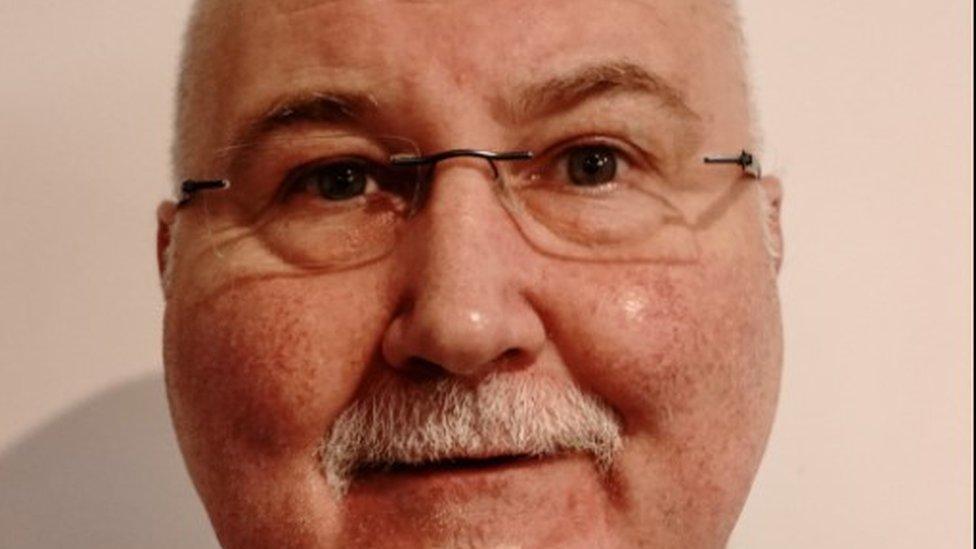
Les James was forced to retire early from a job he loved for the Ministry of Justice
Among those waiting for more specialised care is Les James, from Carmarthen.
The condition is far less common in men and Mr James has not been diagnosed by a doctor after nine years.
However, he has shown many of the symptoms which can leave him in extreme pain for months at a time and is being helped by a lupus support group in west Wales.
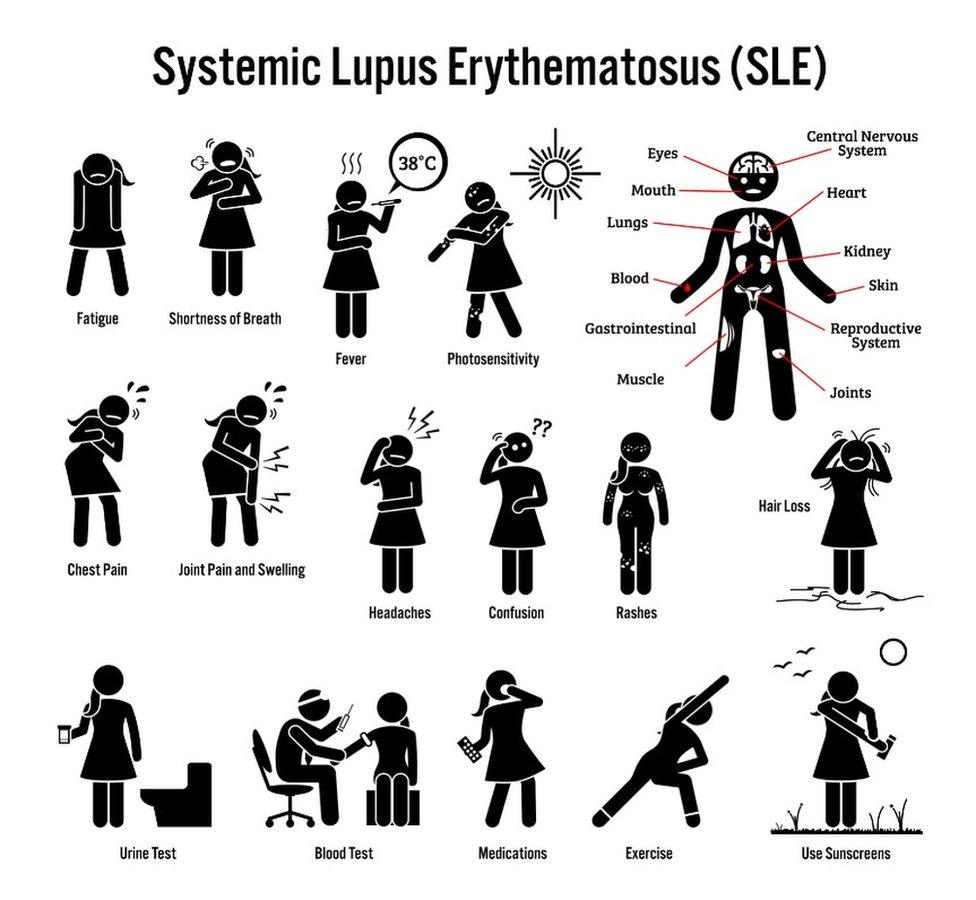
He was forced to retire ten years ago, aged 53, and was given medication for a variety of conditions, including antiphospholipid syndrome, external - which also affects the immune system.
"For six months in 2019, I couldn't walk. My feet were so painful, it was like putting them on a cobbly beach," said Mr James, who takes 165 grams of morphine twice a day.
"Eventually, it went away. But I regularly get pains in my toes and heels."
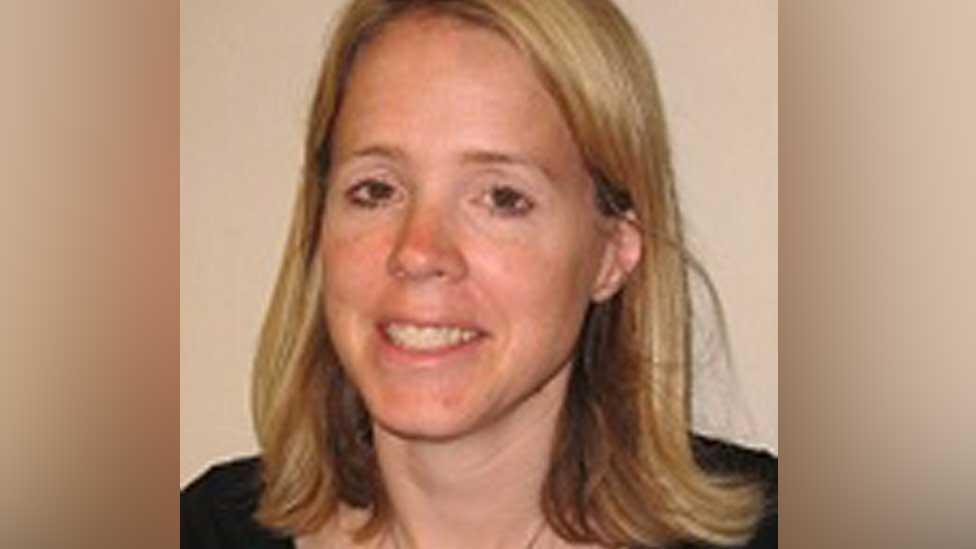
Researcher Mel Sloan found patients in Wales felt less satisfied with support than those in the rest of the UK
Cambridge University research associate Melanie Sloan - who has lupus - is leading a team surveying attitudes, external of patients.
Of 236 respondents, 43% of those in Wales said they had been refused a referral to see a specialist, compared to 21% in the rest of the UK.
Campaign group Fair Treatment for the Women of Wales, external said there is a lack of awareness of the "huge impact" and lack of investment in specialist services.
"Within our patient community, we hear far too often of women's symptoms being downplayed or not adequately managed and this has significant consequences for patients' long-term health," a spokeswoman added.
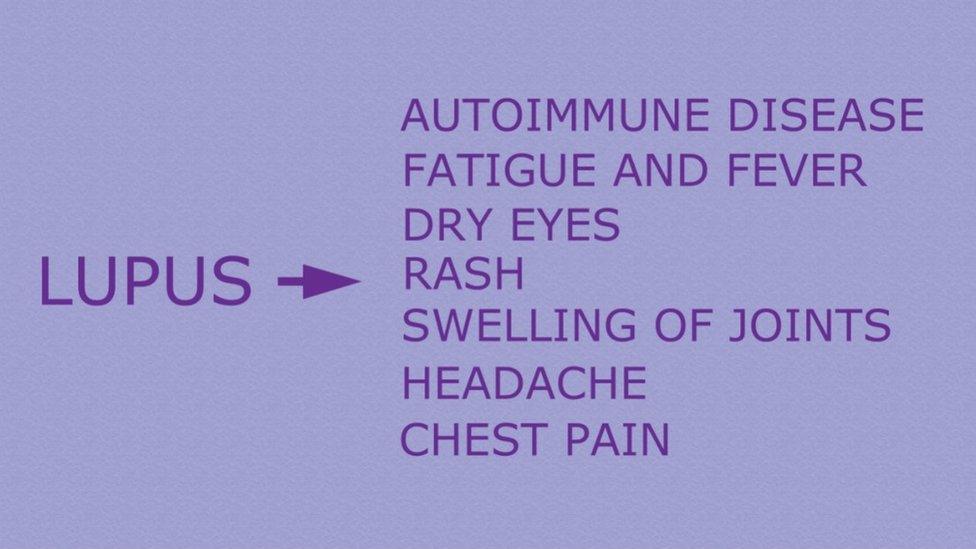
The Welsh Government spokeswoman said it recognised the impact lupus can have on people's health and lives.
"We will be consulting about musculoskeletal conditions, including lupus, and their treatment," a spokeswoman added.
"We will continue to work with relevant organisations, including Lupus UK and Cymru Versus Arthritis, to improve treatment for people affected."
Andrew Carruthers, director of operations at the Hywel Dda health board in west Wales, said it holds lupus clinics conducted by consultant rheumatologists.
Patients who cannot be managed within the health board area are referred to tertiary centres of excellence as clinically required, he added.
Mr Carruthers said: "We have participated in the British Society for Rheumatology lupus audit which showed the health board was above average for both the Welsh and UK average for most of the standards set out and we are committed to improving on these standards to further enhance the care for patients with lupus."
- Published27 February 2021

- Published8 October 2015
